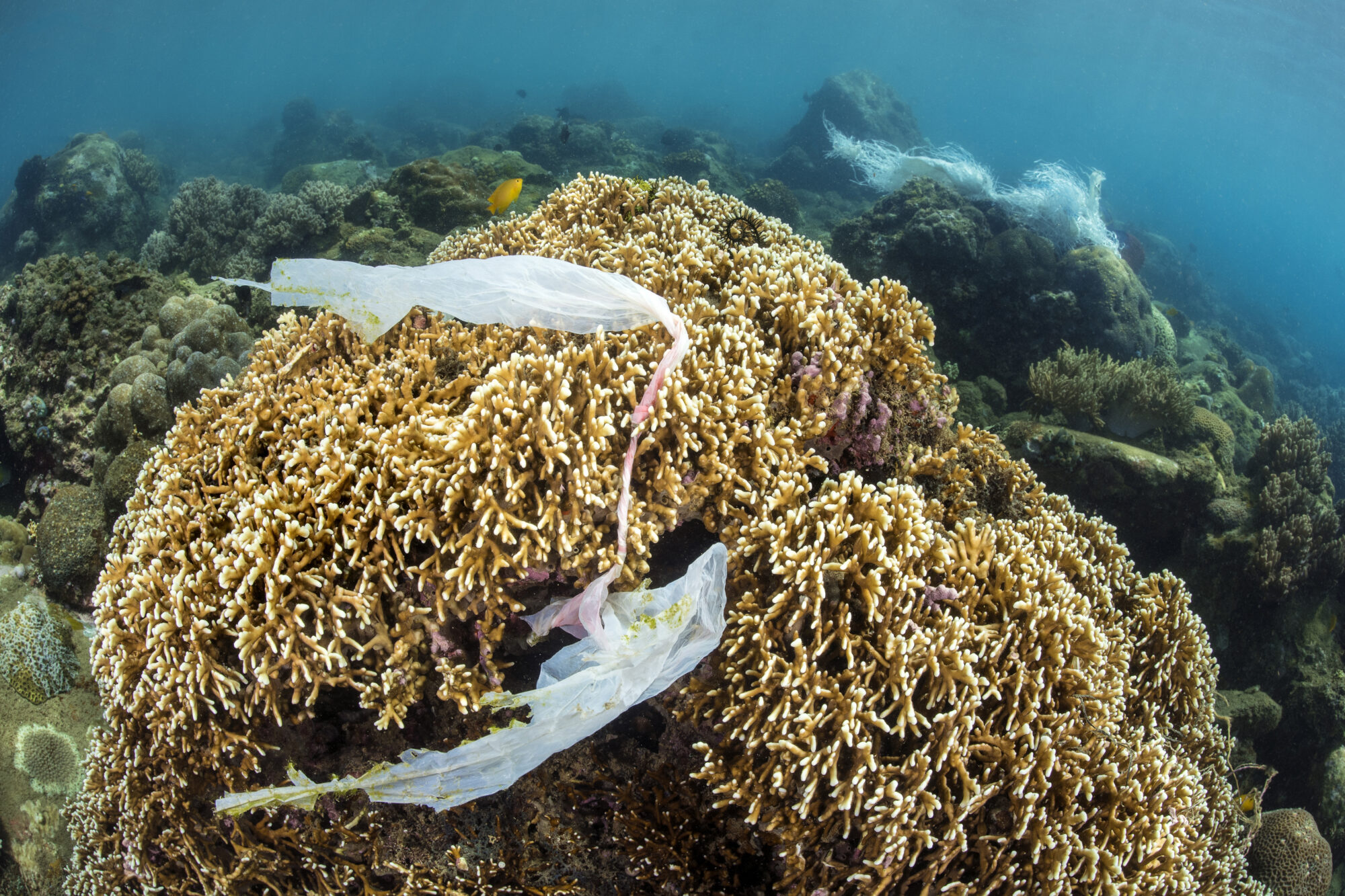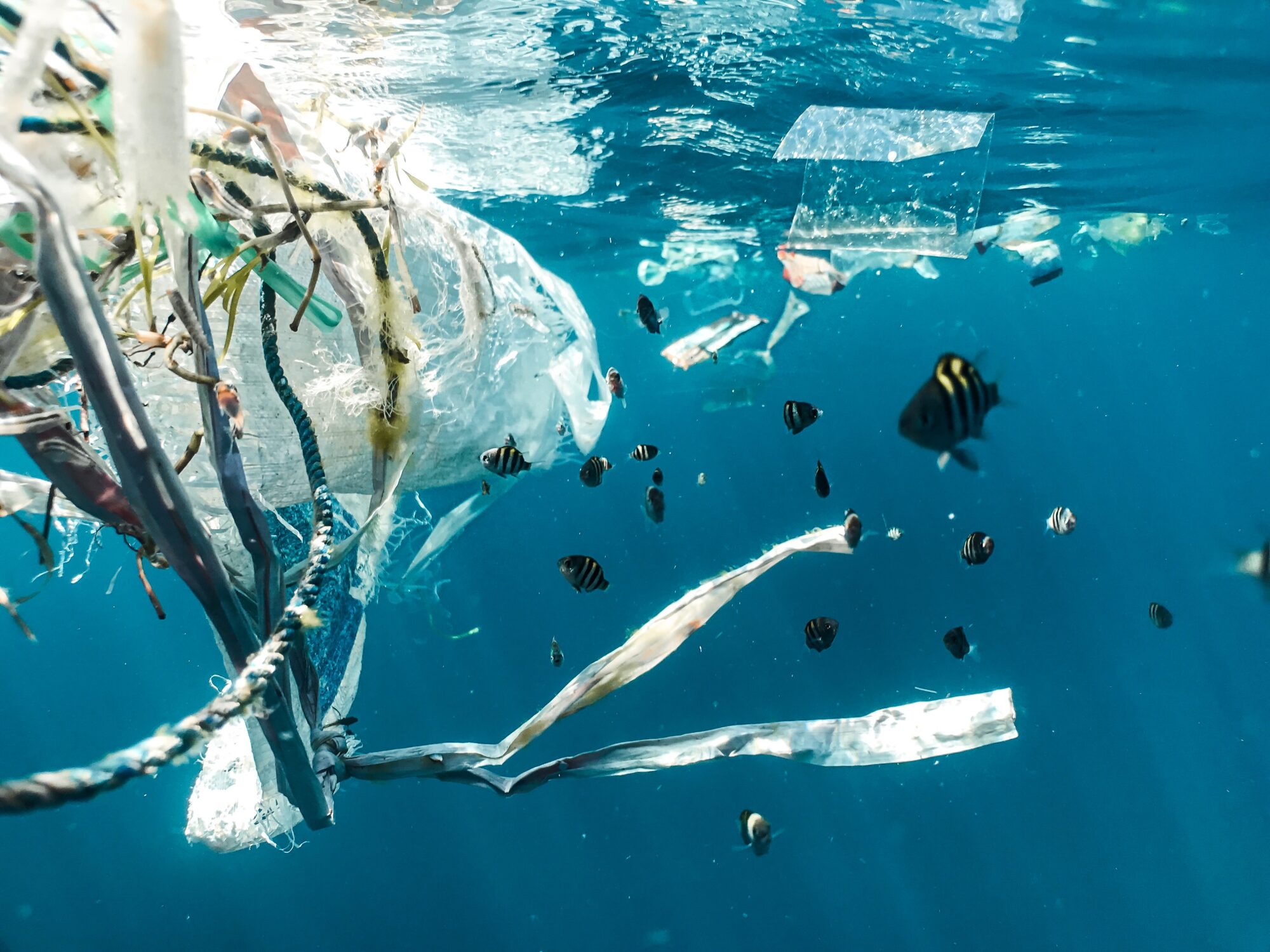

New research published in the prestigious journal Nature has shed light on the pervasive problem of plastic pollution affecting almost all coral reefs worldwide.
This groundbreaking study, conducted by a team of scientists from Nekton, California Academy of Sciences, and the Universities of São Paulo, Oxford, and Exeter, represents the most comprehensive survey of plastic pollution on coral reefs ever conducted.
The researchers surveyed a total of 84 shallow (less than 30m) and mesophotic (30-150m also known as “deep reefs”) across 25 locations in the Pacific, Atlantic, and Indian oceans. Their findings were deeply concerning, as debris over 5cm in size was found at 77 out of the 84 reefs surveyed, even in near-pristine locations such as uninhabited atolls in the central Pacific. Astonishingly, the study revealed that deeper reefs were more polluted than their shallow counterparts.
Plastic waste accounted for a staggering 88% of the debris found, with nearly three quarters of the identified items (73%) being fishing gear. Plastic pollution has far-reaching negative impacts on coral reefs, ranging from the spread of coral diseases to the entanglement and damage of reef structures, which subsequently reduces fish abundance and diversity. According to lead author Hudson Pinheiro, PhD, from the University of São Paulo:
Astonishingly, the study revealed that deeper reefs were more polluted than their shallow counterparts.

The research also highlighted the highest density of pollution at the Comoros, an island chain off the southeast coast of Africa, with nearly 84,500 items per square kilometer. Reefs off the Philippines and Brazil were also found to be highly polluted. Surprisingly, the only plastic-free reefs recorded in the study were in the Seychelles Outer Islands, but even there, traces of plastic were observed outside the surveyed areas.
Co-author Bart Shepherd, director of the Academy’s Steinhart Aquarium and co-director of Hope for Reefs, emphasised the urgent need to protect deeper reefs and include them in conservation efforts. Deep reefs, previously believed to be a refuge for shallow reef species in a changing climate, are facing similar pressures from human society and require further study and conservation interventions.
Deep reefs, previously believed to be a refuge for shallow reef species in a changing climate, are facing similar pressures from human society

The researchers also stressed the importance of expanding marine protected areas to include deep reefs and implementing science-based strategies to prevent plastic pollution.
The alarming findings of this study serve as a wake-up call for conservationists and policymakers alike. Coral reefs, vital ecosystems teeming with marine life, are impacted by plastic pollution globally. The researchers hope their findings will prompt urgent action and guide future conservation efforts to protect these fragile ecosystems. With swift implementation of science-based solutions, there is still hope for the survival and recovery of coral reefs.